Imagine all the basic needs of life lined up like a row of dominoes. When one topples—like losing a job—it triggers a chain reaction that affects everything else, from having enough money for food or childcare to having a safe and secure home. Everyday rights properly protected in law would keep these dominoes standing, ensuring that people's needs are met and all the pieces stay in place, allowing them to live with dignity, even when things go wrong.
But across the UK, these rights have long been threatened by political choices and a broken system. We spoke to people in across the UK to learn more about everyday rights violations in the UK. Our findings reveal how the social safety net is crumbling, leaving many people without their rights
So what are our everyday rights and what is the reality of their violations in the UK? Explore below through illustrations by artist, Edith Pritchett (@edithcartoonist).
🏠 Home
Home is a human right, yet many are without one. Poor housing conditions, like mould and damp, are also worsening health issues.
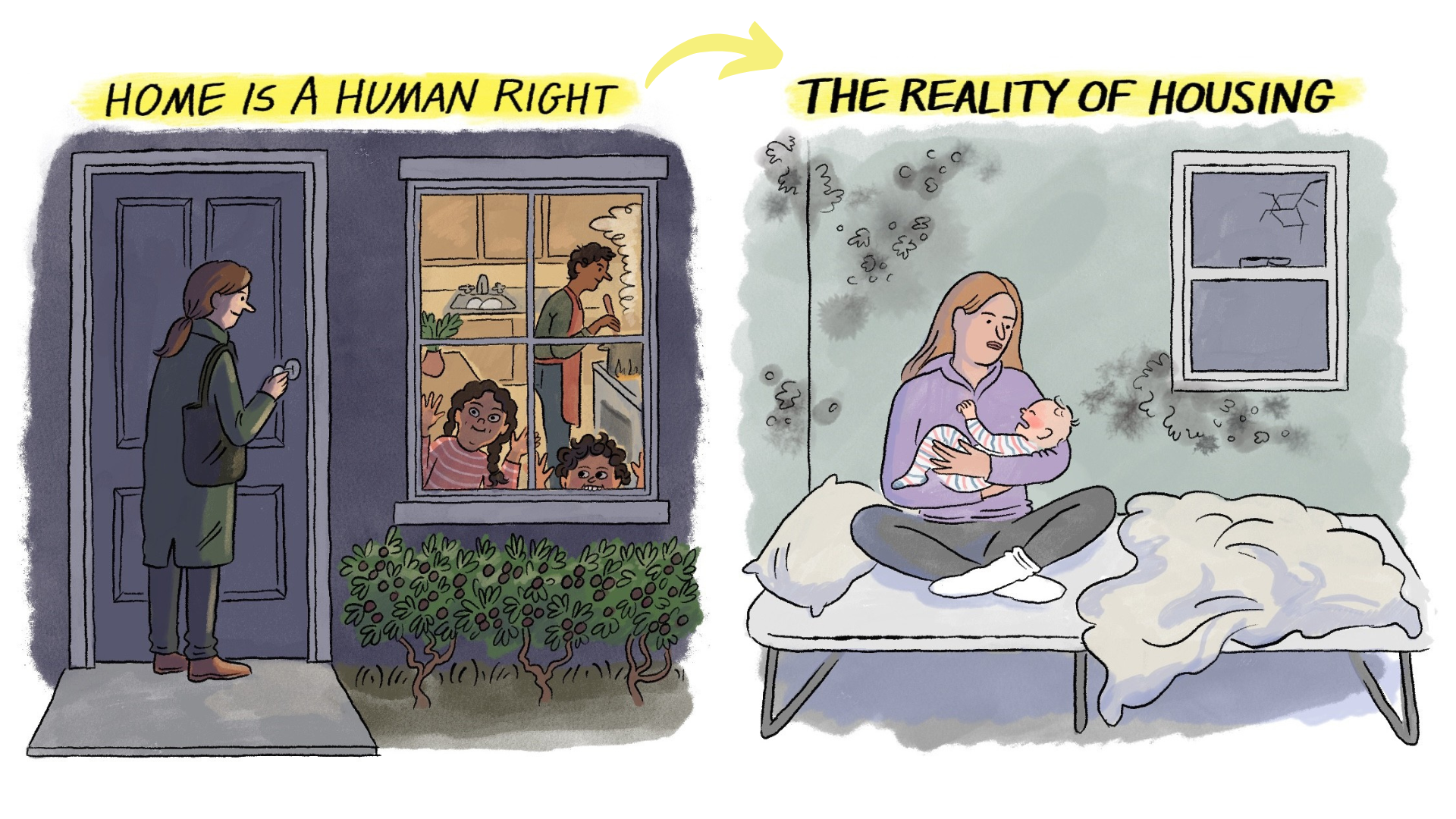
🏥 Health
Health is a human right, but GP appointments are hard to get, NHS waiting lists are long, and services are overburdened, meaning people must wait too long for care and treatment.
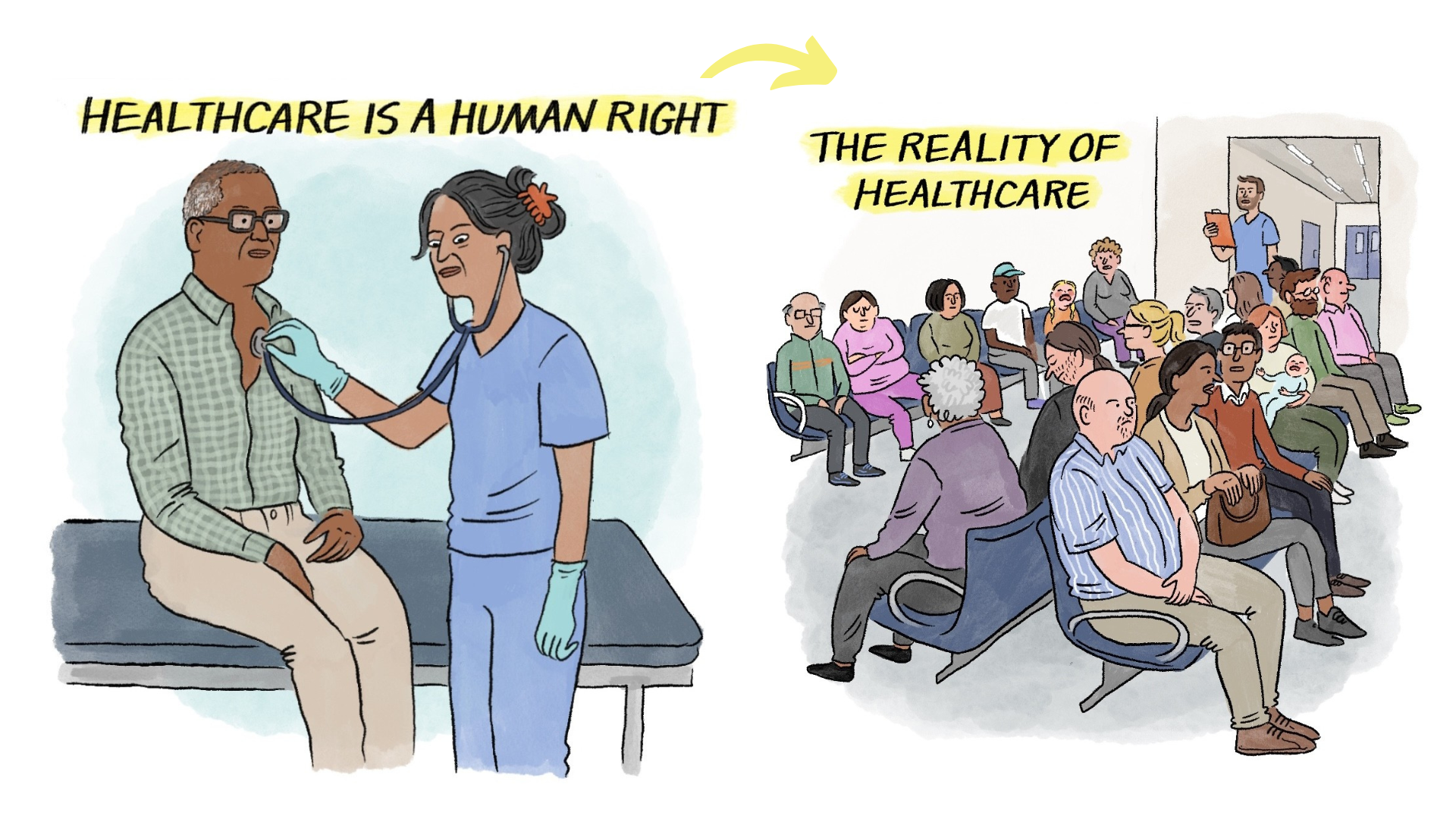
📚 Education
Education is a human right, but children feel stigmatised because schools want expensive branded uniforms or charge for activities, which is unaffordable for families.
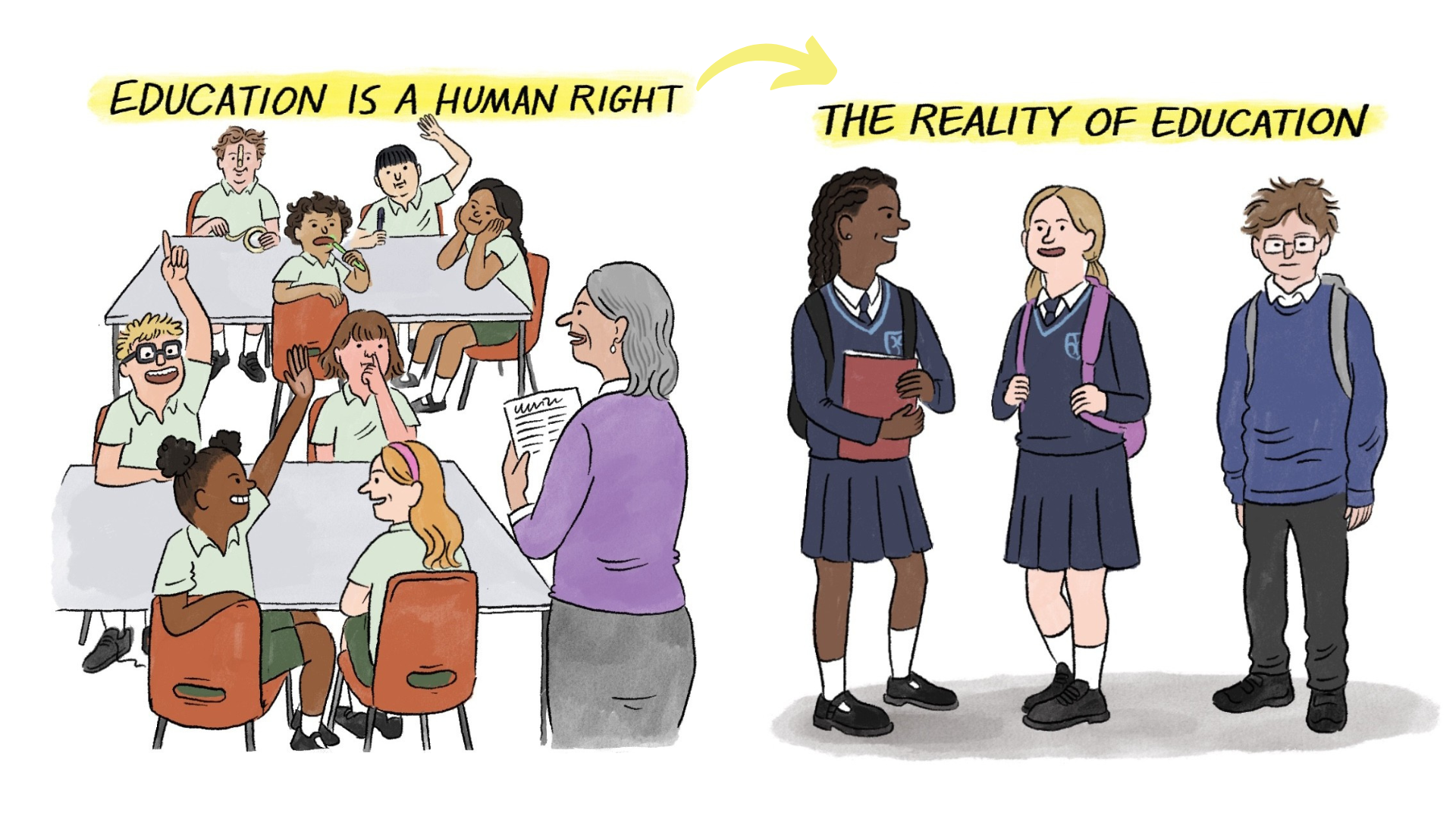
🥗 Food
Food is a human right, but food costs have skyrocketed, and dependence on food banks is higher than ever.
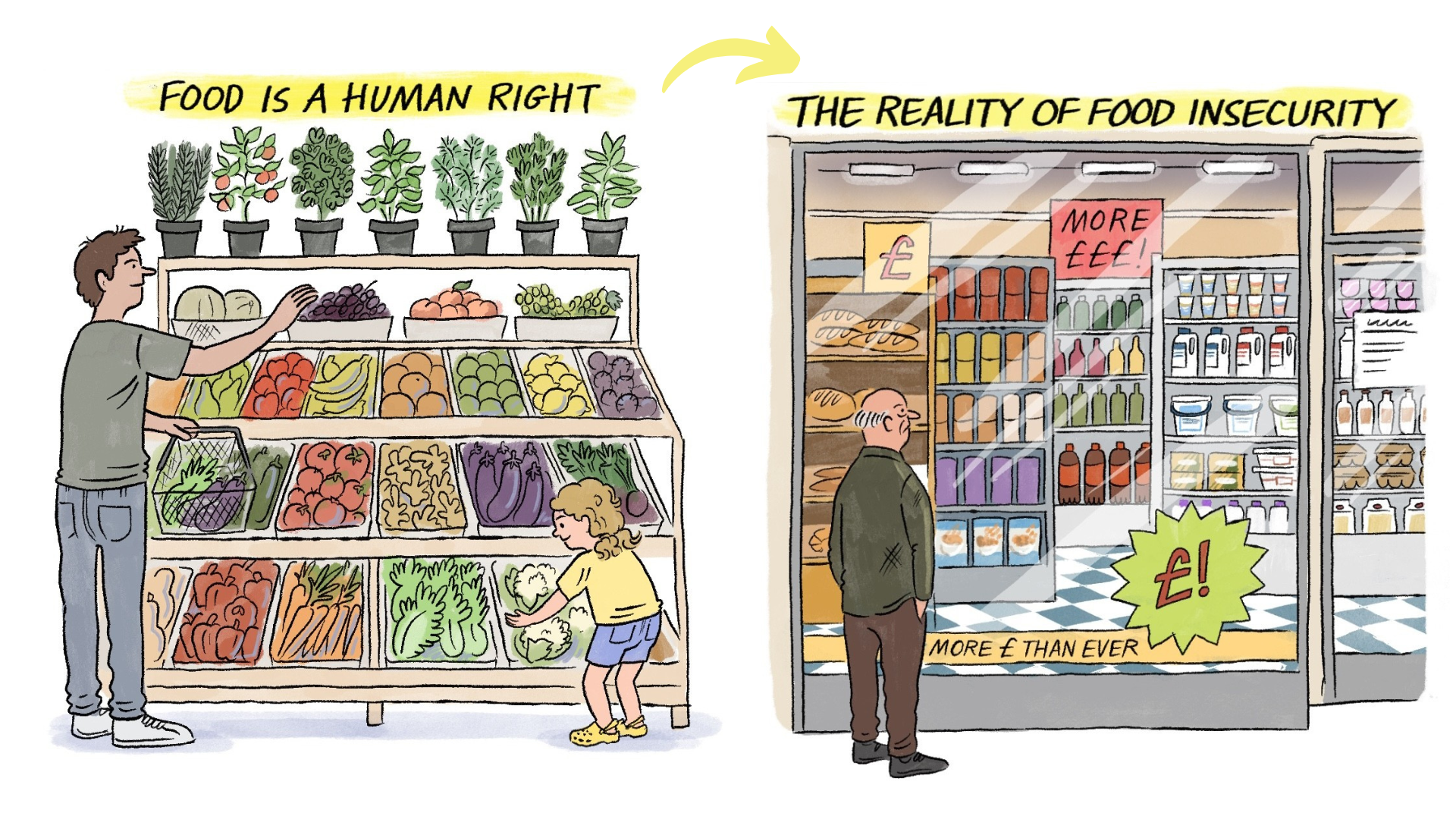
☔ Social Security
Social security is a human right, but accessing it can be difficult, and people feel stigmatised for needing support. The amount paid isn’t enough to make ends meet, trapping people in poverty.
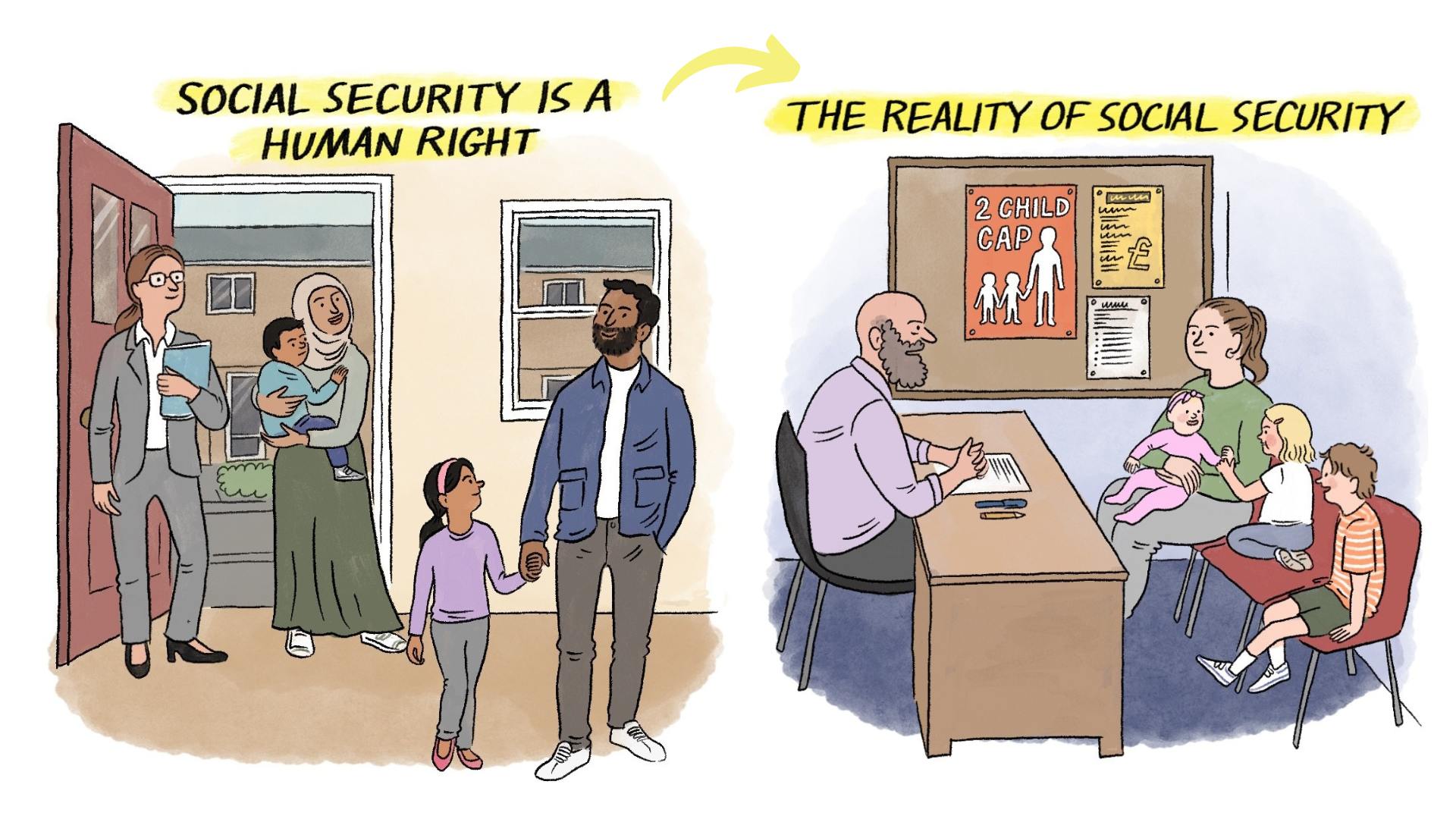
👷🏽♀️ Work & workers’ rights
Work is a human right, but many are trapped on social security, unable to access decent work due to discrimination, high childcare costs, or insecure jobs that don’t pay enough.
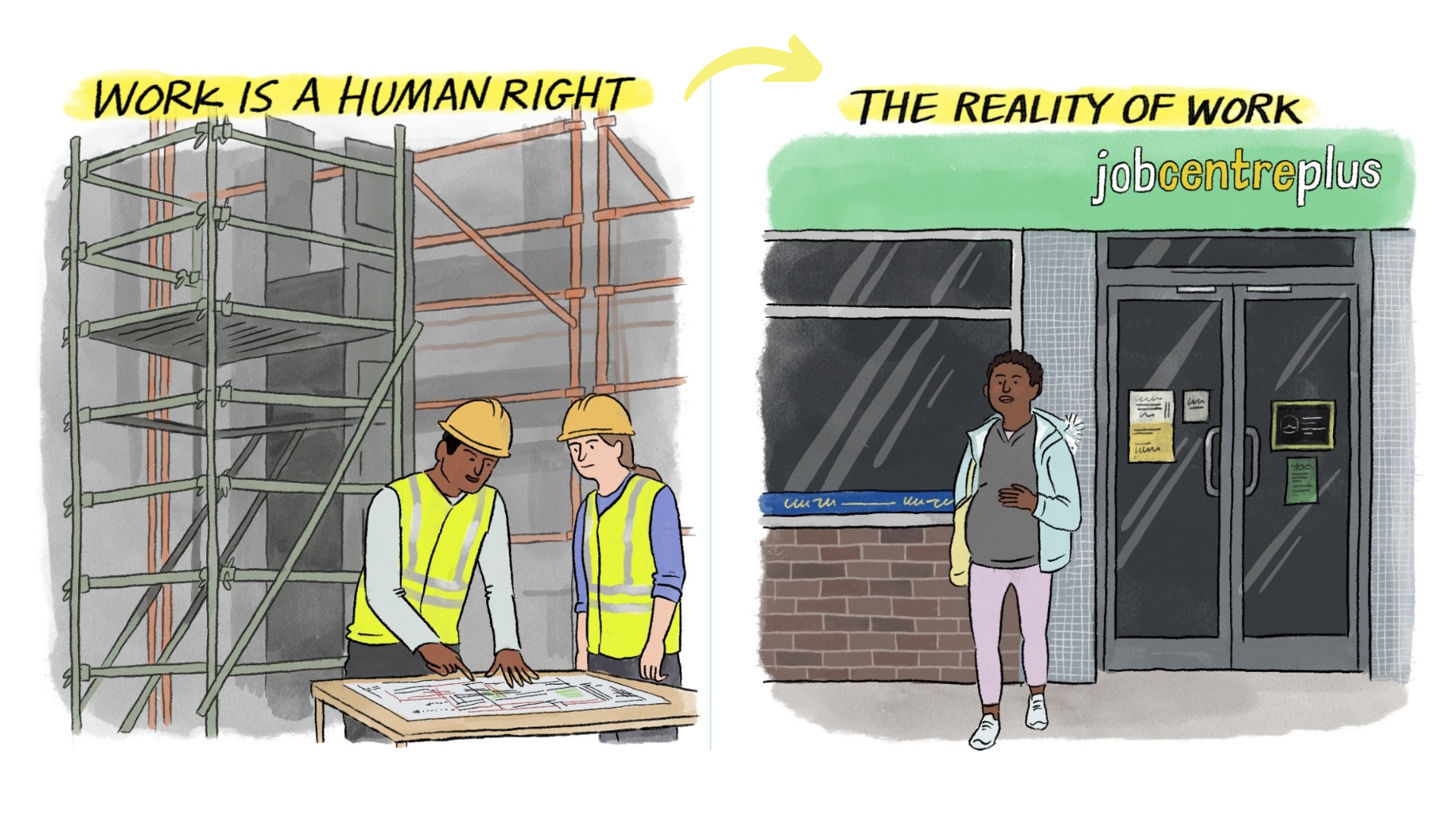
👪🏼 Support for family
Support for family is a human right but social care often fails to meet people’s needs because underpaid carers aren’t given the time to support people properly.
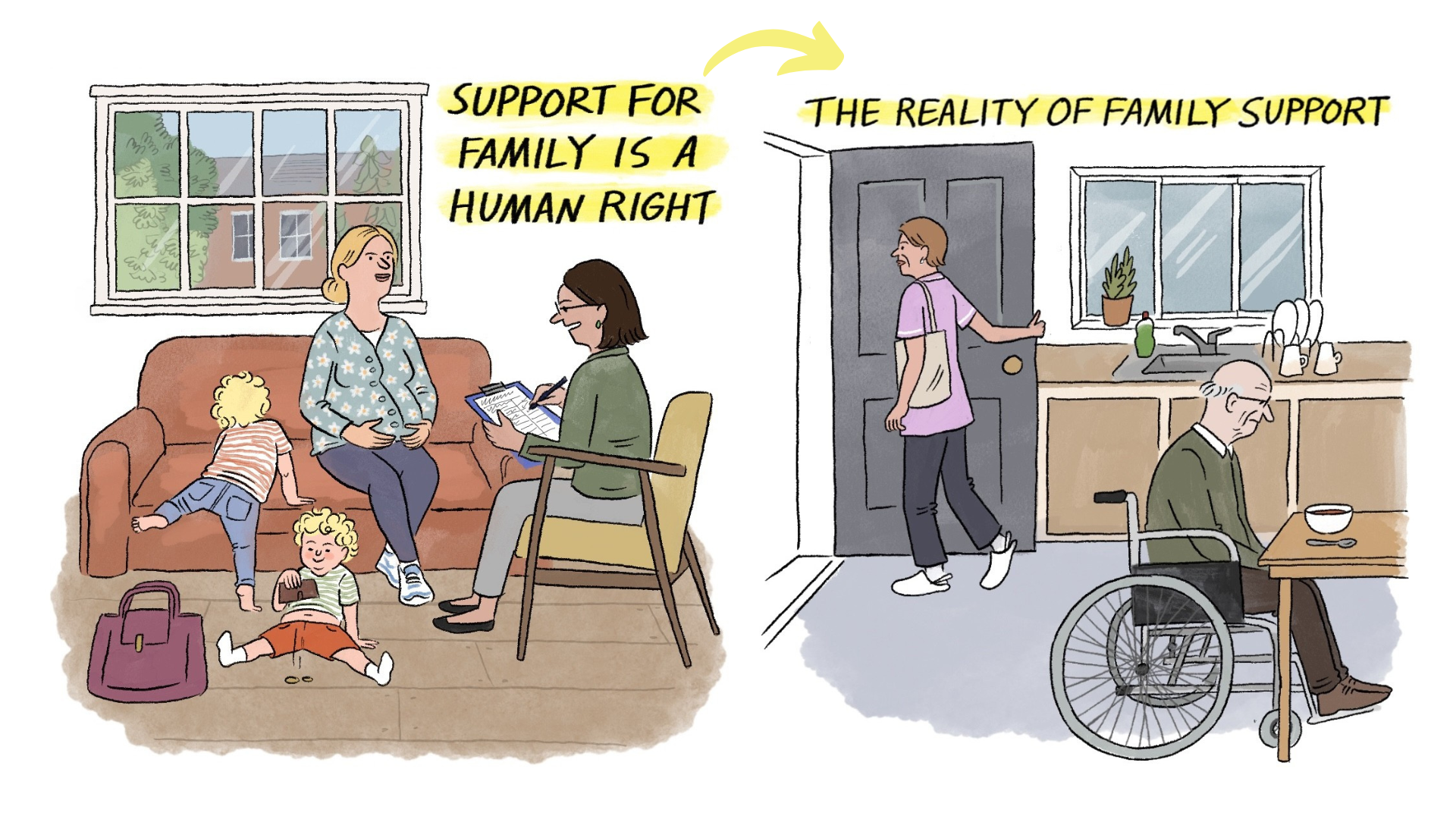
Unlike other human rights, everyday rights aren’t protected by a Human Rights law. This means governments can play political football with issues like social security for people with disabilities, without the deterrent of their actions being challenged in court. Governments can make policies in a piecemeal way without having to stop the domino impact. For example, the two-child limit on welfare benefits has had a widespread impact on families, leading to an increase in child poverty across the UK.
Read the voices from the frontline of the fight for everyday rights for a more in-depth look at the reality of everyday rights violations in the UK